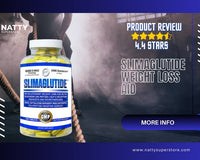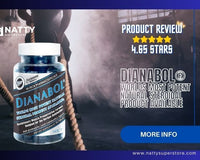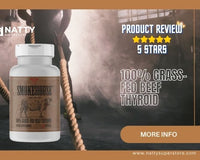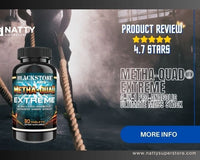In the world of fitness and nutrition, protein supplements have become the cornerstone of many diet regimens, workout programs, and health strategies. Among the many types of protein powders available, three of the most common and popular are whey isolate, whey concentrate, and casein protein. Understanding the distinctions between these and their respective benefits can guide users in making informed decisions tailored to their unique needs.
Whey Protein Isolate
Whey isolate protein stands out in the vast world of nutritional supplements due to its purity and protein-packed profile. Originating from milk during the cheese-making process, whey is then processed to create either whey concentrate or whey isolate. The distinction between the two lies in the composition and processing methods, with whey isolate undergoing additional refinement.
Whey isolate protein is essentially a more "isolated" or purified form of whey. Through a series of filtration processes, most of the fats and lactose found in whole whey are removed, leaving behind a product that is typically around 90% protein or even higher. This high protein content, coupled with reduced fats and carbohydrates, makes whey isolate an attractive choice for those meticulously tracking their macro intake.
A standout feature of whey isolate is its digestibility. Due to the removal of most of its lactose, it's often more digestible for people who are lactose intolerant or sensitive. This ensures that a larger audience can benefit from its protein-rich goodness without gastrointestinal discomfort.
The rapid absorption rate of whey isolate makes it particularly valuable for athletes and fitness enthusiasts. After a strenuous workout, muscles are like sponges, eager to absorb nutrients for repair and growth. The quick assimilation of whey isolate ensures that these nutrients are delivered promptly, optimizing the post-workout recovery window.
The neutral flavor profile of whey isolate allows for versatility. It can be seamlessly incorporated into various recipes, shakes, or even consumed on its own, making it not only a nutrient powerhouse but also a convenient dietary addition. [1]
Core Benefits:
High Protein Content: Its high protein content makes it ideal for those who are trying to increase their protein intake without consuming additional fats or carbohydrates. [2]
Rapid Absorption: Whey isolate is rapidly absorbed into the bloodstream, which can be particularly beneficial post-workout when the body is in need of immediate protein for muscle recovery and growth. [3]
Lactose-Free: Those who are lactose intolerant or have a sensitivity can often tolerate whey isolate better than whey concentrate because most of the lactose is removed during the refining process. [4]
Whey Protein Concentrate
Whey protein concentrate is one of the most common forms of protein supplements available in the market, revered for its balanced nutrient profile and versatility. Extracted during the cheese-making process from milk, whey undergoes various levels of filtration to produce different types of whey products, one of which is the concentrate form.
Unlike its counterpart, whey isolate, which undergoes further refinement to eliminate more fats and carbohydrates, whey protein concentrate retains a larger percentage of these components. As a result, WPC typically contains between 70% to 80% protein, with the remaining being fats, carbohydrates, and other nutrients. This lesser degree of processing ensures that many of whey's natural nutrients remain intact, offering a broader spectrum of health benefits. [5]
One significant advantage of whey protein concentrate is its richer content of bioactive compounds. These include immunoglobulins, lactoferrin, and glycomacropeptides, which can support immune function, aid in nutrient absorption, and potentially offer anti-inflammatory benefits.
The taste and texture of WPC are often preferred by consumers. The presence of fats gives it a creamier consistency, making shakes and blends smoother. This also often translates to a more pleasant, less chalky taste, making it a favorite for many. [6]
Core Benefits:
Cost-effective: Generally, whey concentrate is less expensive than whey isolate because it undergoes less processing. This makes it a more economical choice for those on a budget.
Rich in Nutrients: Because it's less processed, whey concentrate retains more of the beneficial compounds, including growth factors, lipids, and minerals. [7]
Boosts Immune System: The immunoglobulins present in whey concentrate help to support the immune system, making it a great choice for overall health. [8]
Taste: Some users prefer the taste and texture of whey concentrate over other forms of protein due to its richer, creamier consistency.
Casein Protein
Casein protein, like whey, is derived from milk but boasts a distinct nutrient profile and absorption rate. Constituting about 80% of the protein content in cow's milk, casein is often dubbed the "slow-release" protein, a title that captures its unique digestion and absorption dynamics.
What sets casein apart is its ability to form a gel-like consistency in the stomach. This characteristic slows down the digestion process, ensuring a gradual, steady release of amino acids into the bloodstream. This sustained release can span several hours, making casein an optimal choice for periods of fasting, like before bedtime, to support muscle repair and growth during sleep. [9]
From a nutritional perspective, casein is a complete protein, containing all essential amino acids required by the body. Moreover, it's rich in calcium and phosphorus, supporting bone health.
Its most notable benefit, especially for athletes and fitness enthusiasts, is its anti-catabolic property. The prolonged delivery of amino acids can help minimize muscle breakdown, especially during periods when food intake might be sparse.
Core Benefits:
Sustained Release: Its slow absorption rate provides a steady supply of amino acids to the muscles over an extended period. This makes casein an excellent choice as a nighttime protein, ensuring that muscles receive a continuous supply of nutrients while you sleep. [10]
Muscle Retention: The sustained release of amino acids can help prevent muscle breakdown, especially during times when the body might go without food for longer periods. [11]
Higher Calcium Content: Casein protein typically contains more calcium than other protein sources, which can contribute to better bone health. [12]
Thick Texture: Its unique texture makes casein ideal for making protein puddings or other thicker protein-rich snacks.
Top 5 Benefits of Whey Protein
Muscle Growth and Recovery: Whey protein is rich in branched-chain amino acids (BCAAs), especially leucine, which is known to stimulate muscle protein synthesis. Consuming whey protein post-workout can aid in repairing and building muscle tissue, making it especially popular among athletes and fitness enthusiasts. [13]
Weight Loss Support: Several studies have shown that whey protein can help reduce body fat when combined with resistance training and a balanced diet. It can increase feelings of fullness, leading to a reduced caloric intake. Additionally, a higher protein intake can boost metabolism, helping the body burn more calories. [14]
Antioxidant Support: Whey protein is a good source of cysteine, an amino acid that gets converted in the body to glutathione. Glutathione is one of the body's most potent antioxidants, which helps combat oxidative stress and boosts the immune system. [15]
Lowers Blood Pressure: Whey protein contains bioactive peptides called lactokinins, which have been found to have a beneficial effect on blood pressure levels. Regular consumption of whey protein has been associated with a reduction in systolic and diastolic blood pressure in several studies. [16]
Supports Healthy Blood Sugar Levels: Consuming whey protein before or with high-carbohydrate meals has been shown to modulate the post-meal rise in blood sugar. This is particularly beneficial for those trying to maintain stable blood sugar levels. [17]
While all three – whey isolate, whey concentrate, and casein protein – offer unique benefits, the best choice largely depends on individual needs and preferences. For those seeking rapid muscle recovery immediately post-workout, whey isolate might be the top choice. For those looking for a more economical and nutrient-rich option, whey concentrate is a solid pick. And for individuals who need a steady, prolonged release of amino acids, especially before a long fast or bedtime, casein protein proves invaluable.
It's always essential to consult with a nutritionist or healthcare provider before making significant changes to one's diet or supplement regimen. But understanding the core differences and benefits of these proteins offers a foundational guide for those looking to optimize their health, muscle growth, and overall well-being.









